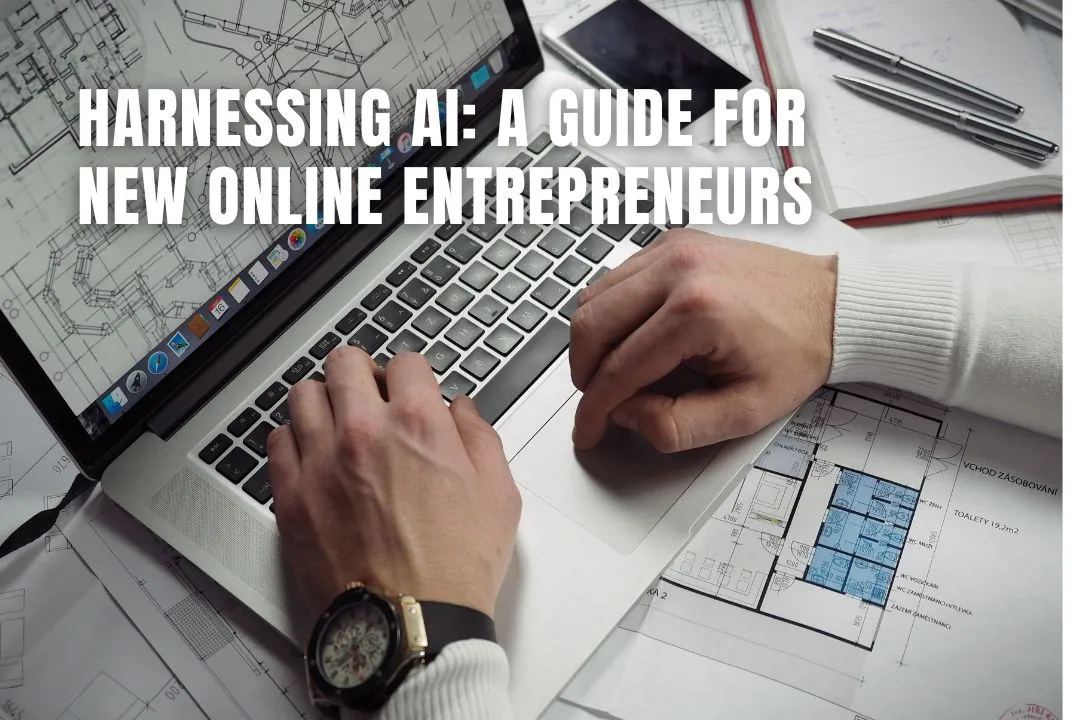May 29, 2025

Launching a new online business is thrilling—but let's be honest, it's also overwhelming. From managing customer interactions to crafting marketing campaigns, the to-do list never ends. That's where artificial intelligence (AI) steps in. For new online entrepreneurs, AI isn't just a buzzword—it's a game-changer.
This guide breaks down how you can practically and effectively leverage AI to streamline your operations, enhance customer experiences, and make smarter business decisions.
AI is transforming industries, and small businesses are catching up fast. According to McKinsey & Company, 65% of organisations are now using generative AI regularly, nearly double the rate from the year before. And it's not just big corporations benefiting. The U.S. Census Bureau notes that AI is helping small businesses execute tasks like customer service, marketing, and even web design that once required specialised talent.
In fact, 98% of U.S. small businesses now use some form of AI. With such widespread adoption, staying competitive means embracing this tech sooner rather than later.
AI is no longer a futuristic concept reserved for tech giants. It's a versatile tool that small business owners can use to punch above their weight. Whether you're building your first website or scaling your product line, AI can help you move faster and smarter without breaking the bank.
Let AI handle the repetitive stuff so you don't have to. Tools like Zapier and ChatGPT can automate:
According to Thryv, 67% of small business owners who use AI say it frees up their personal time. Imagine what you could do with a few extra hours each week.
Automation isn't just about saving time; it also reduces the chance of human error. Fewer mistakes mean fewer customer complaints and smoother operations, especially when you're juggling multiple roles in a startup environment.
AI-driven platforms like Jasper, Copy.ai, and Mailchimp use machine learning to create personalised content and automate campaigns. Want better ad performance? AI can analyse which creatives work best and adjust accordingly. It's like having a full marketing team without the overhead.
Beyond ad performance, AI can help you understand your audience on a deeper level. These tools gather data about customer behaviour, preferences, and engagement, which you can use to create laser-focused campaigns that actually convert.
Personalised recommendations, automated support, and instant answers? That's the power of AI.
E-commerce businesses are using AI chatbots and recommendation engines to drive up conversion rates. Whether you sell digital downloads or handmade crafts, AI can help you connect with customers in more meaningful ways.
Customers expect fast, responsive service. AI tools like chatbots operate 24/7, offering immediate assistance and reducing bounce rates. This builds trust, encourages repeat business, and gives your brand a competitive edge.
AI tools like Google Analytics 4 and Looker Studio interpret huge sets of customer data so you can:
This means faster, smarter decisions with less guesswork.
Making data-driven choices isn't just efficient—it's empowering. With the right AI insights, you can pivot quickly when something isn't working and double down when it is, keeping your growth momentum strong.
You don't need a tech background to start using AI. Follow this beginner-friendly roadmap:
What do you spend time on every day? Invoicing? Scheduling? Social media posts? List these out.
Think of this as an audit of your time. Once you pinpoint where your hours are going, it becomes easier to see which tasks are ripe for automation or delegation to AI tools.
Look for tools with free trials and simple interfaces. Here are a few to consider:
Don't try to adopt everything at once. Start with one or two tools that solve immediate pain points, then scale your AI toolkit as your confidence and business grow.
Start small. Maybe your goal is to save two hours a week or improve email open rates by 10%. Track results and build from there.
Setting tangible, time-bound goals helps you measure AI's impact and keep your adoption process focused. It also prevents overwhelm, which is crucial in the early days of entrepreneurship.
As you start adopting AI at work, it's essential to be aware of risks. According to McKinsey, companies are increasingly addressing cybersecurity and data accuracy concerns related to AI. Use tools with strong data protection policies and train your team (or yourself) on ethical AI use.
Security doesn't need to be complex, but it should be a priority. Choose reputable platforms, enable two-factor authentication, and routinely back up data to reduce vulnerabilities.
Let's put theory into practice. Here are a few real examples of how new entrepreneurs are leveraging AI:
These aren't outliers. They're new business owners like you, using AI to grow smartly and sustainably.
Even small wins with AI can snowball into significant business growth. When used strategically, AI becomes a silent partner that works behind the scenes, improving outcomes without increasing your workload.
Consider these stats from the Thryv AI Report:
The ROI is real. And it's only going up.
When nearly half of small business owners plan to jump on the AI bandwagon, it's clear the trend isn't slowing down. Now is the perfect time to get ahead of the curve and use these tools to your advantage.
You don't need to be a coder or tech genius to benefit from AI. You just need curiosity, a willingness to experiment, and the right tools. Start with what makes sense for your business and build from there.
The goal? Let AI handle the busywork so you can focus on what really matters—building a thriving, human-centered business.
Explore tutorials, ask peers for recommendations, and don't be afraid to test different tools. AI is evolving rapidly, and staying flexible will help you stay competitive.